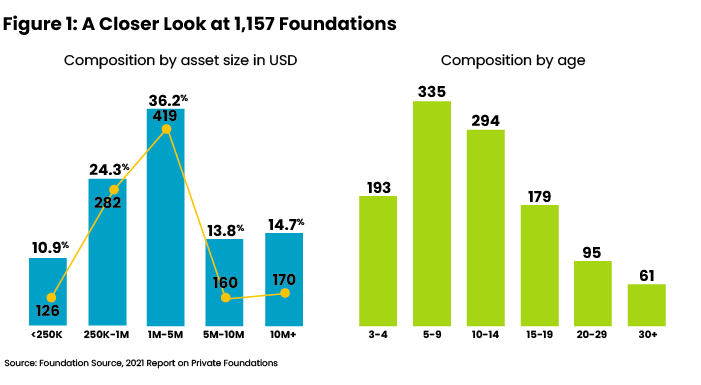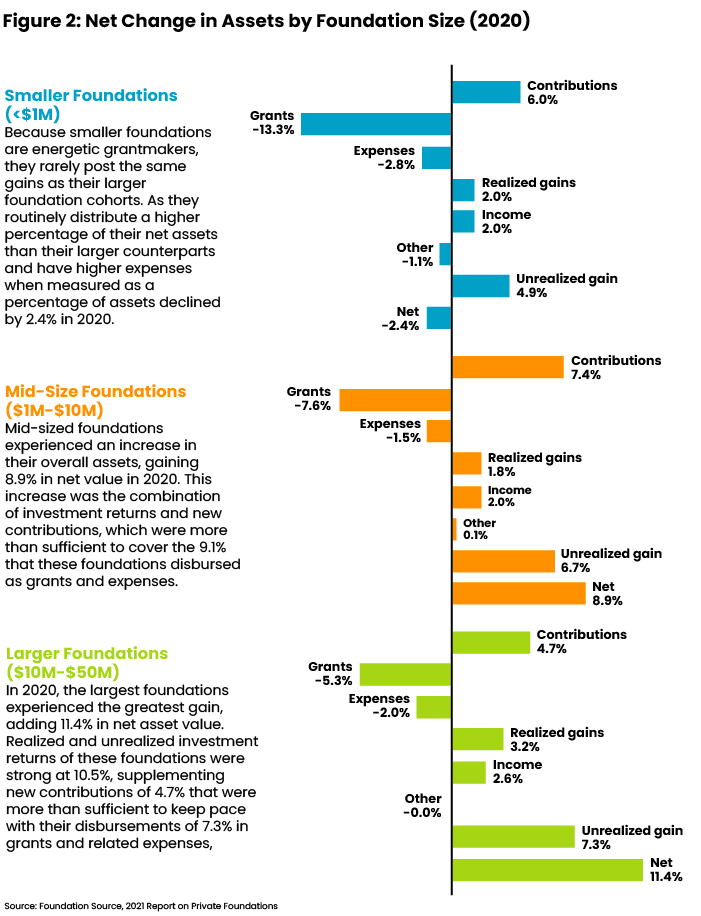High-net-worth individuals with the smallest foundations were among the most generous during the COVID-19 pandemic by at least one measure.
In 2020, they gave away three times the 5% of assets they are required to disperse. That is one of the interesting findings in a new report released today by Foundation Source, the nation’s largest manager of private foundations.
Its “2021 Report on Private Foundations – Grantmaking” studied 1,157 foundations and found they funded approximately 1,000 more grants and disbursed $15 million more in 2020 than in 2019, an average of $339,032 per foundation.
According to the IRS, the report noted, the United States has close to 100,000 private foundations that don’t run their own programs but make grants to others. Of that total, just 2% have more than $50 million in assets.
The total value of all grants awarded in 2020 increased by about 4.3%, from $348 million in 2019 to $363 million in 2020. The number of grants rose as well, by 3.9%, from 26,739 to 27,778.

While small foundations — those with $1 million or less in assets — gave away about 15% of assets, the total amount they granted actually decreased by 27%, or $10 million, Foundation Source said. Meanwhile, the total amount granted by larger foundations increased by about 12% or slightly more than $20 million when compared to the previous year.
Small foundations actual saw a 2.4% drop in assets during 2020 — a year when many stock indexes notched double-digit returns. The report said the 2.4% decrease was in part because those foundations gave away three times the 5% minimum distribution requirement, outpacing the increase in capital value. The assets of mid-size and larger foundations grew at 8.9% and 11.4% respectively.
The report emphasized that the difference in outcomes for the three foundation groups can’t be fully attributed to investment returns. Different rates of outflows for grants and expenses were a major factor. Also, smaller foundations routinely distribute a higher percentage of their net assets and have higher expenses as a percentage of assets than their larger counterparts, the report added.

“Smaller foundations were some of the biggest heroes. They gave nearly three times the 5% of assets they were required to disburse, and gave more general purpose grants than special-purpose grants allowing nonprofits wide latitude in how to use the funds, even to meet basic expenses,” said Sunil Garga, Foundation Source’s president and CEO, in the report.
He added that foundations significantly increased their giving to human services and public/societal benefit charities last year, as they “rose to meet the needs arising from the COVID-19 pandemic and racial justice issues.”
Garga noted that grant volume in April 2020 nearly doubled year-over-year, from 5.6% to 9.7%, in response to the national emergency declaration brought on by the pandemic. “Aside from the traditional surge of giving at year end, this unusual April bump represented the largest giving period of the year,” he said.







